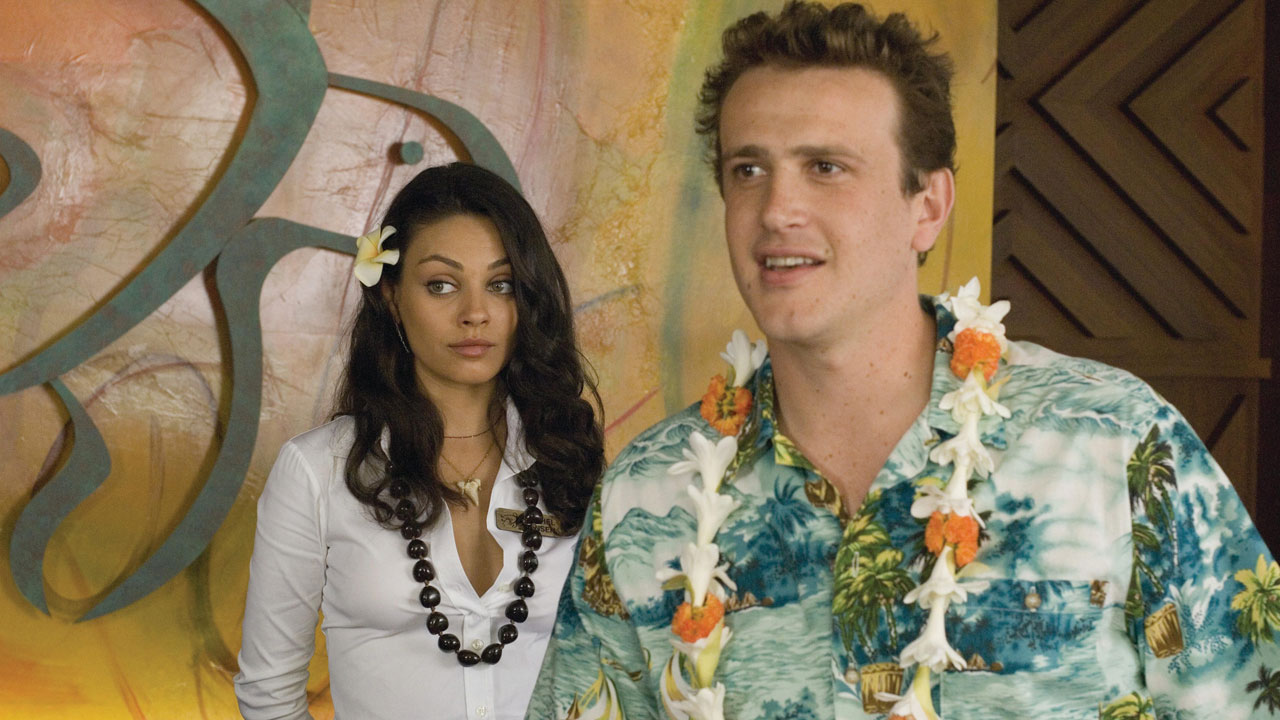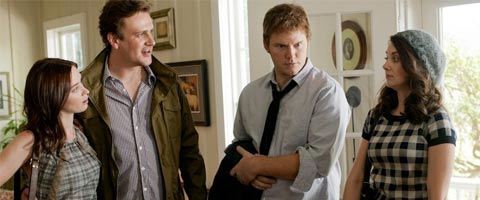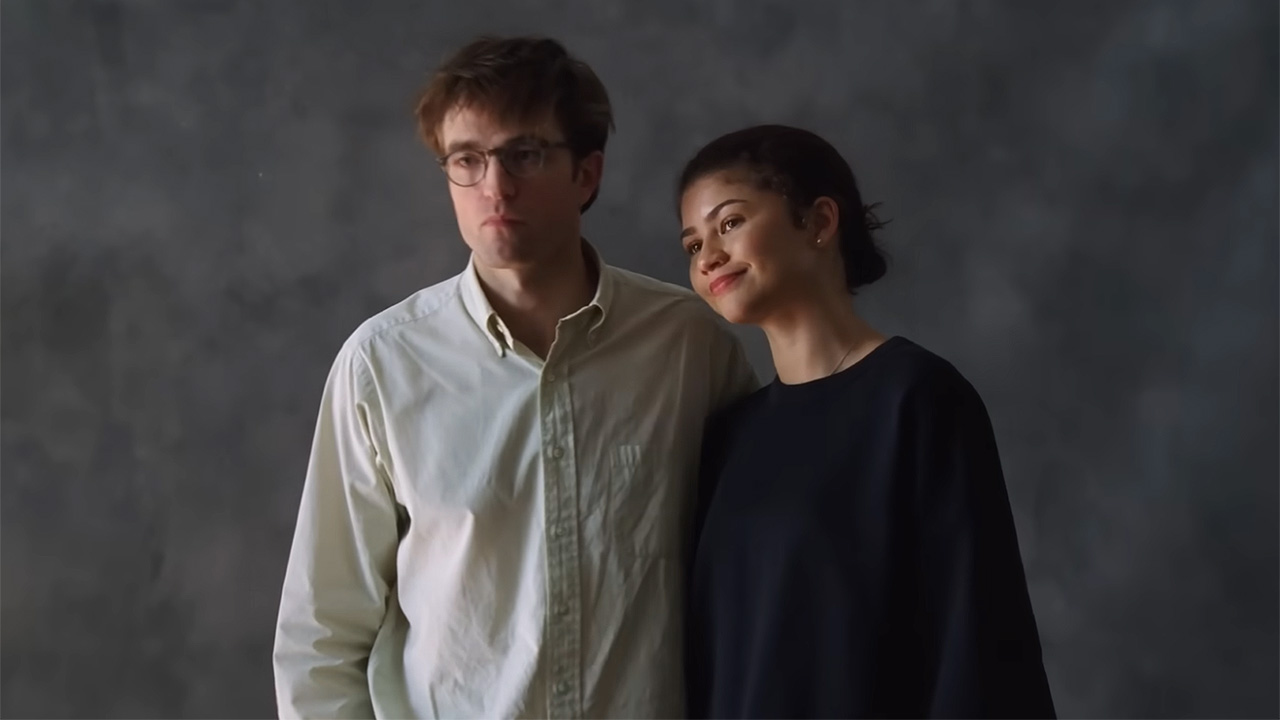The Five-Year Engagement Writer-Director Nicholas Stoller Talks The Key To Romantic Comedy

Creating a quality romantic comedy is a hard business made even harder by the fact that most men don’t want to watch romantic comedies, but that only makes what Nicholas Stoller did in 2008 with Forgetting Sarah Marshall that much more special. The movie was sweet, fun and great for both men and women, refusing to pick sides and being fueled by reality. With Five-Year Engagement, the writer/director has done it again, but then what makes what he does work so well while what others do fail so horribly? I had the chance a couple weeks ago to find out, as I sat down with Stoller for a one-on-one interview.
Read our conversation below in which Stoller talks about not only the key to a great romantic comedy, but also crafting Emily Blunt’s character, Violet, what we can expect on the DVD, and the difficulty that comes with pacing a movie set over the course of five years.
I’m curious what you think is the key element in the romantic comedy genre and, possibly more importantly, what do you think everyone else is doing wrong?
I think a lot of times bad romantic comedies rely on kind of an artificial plot device. They rely on miscommunication between the main characters. That never works as a plot device – someone thinking something’s happened that hasn’t actually happened. I think a lot of the time it’s scene as just product. They don’t try and figure out how these characters work, and a lot of times, too, they’re scared of making flawed characters. I don’t really know why, that’s where the comedy comes for me. Especially with the female characters you’ll get someone like super-cool with the guys and watches sports and drinks beer and smokes a doobie before work – that’s not interesting, you know? To me that’s as insulting as the nagging scold. Both things are just unrealistic. All comedy comes from grounded conflict and we try to create characters…it’s very important to me that the girl be as funny if not funnier than the guy. And I would say the funniest scene in Five-Year is between two girls.
That said, one thing that I think is great about your films is that they don’t target either male or female audiences, they’re just for everybody. Is that something that’s in your mind during the writing process?
Yeah. I don’t look at it like, “I wanna get this audience and that audience.” It’s more like, “How do I tell the best story.” So it was really important that both people are right and both people are wrong, and so to do that we had to tell a balanced story. And it just gets funnier – the more both sides are wrong, the funnier it gets. People have seen it, girls have seen it. I talked to this girl who saw it, “I was so mad at Jason!” and I talked to this guy who saw it, “I was so mad at Emily!” That’s kind of what you want. You could feel after test screenings, couples kind of talking and hashing out the movie in kind of an awesome way.
I’m sure that comes from people seeing themselves in the characters.
Your Daily Blend of Entertainment News
Yeah, like in Sarah Marshall we spent a lot of the movie kind of insulting Sarah Marshall, really on Jason’s side. There’s a point towards the end of the movie when Sarah Marshall was like, “You were a depressed weirdo! This isn’t my fault! I was there for you and where were you?” It makes that movie work.

Continuing that line of thought, this is going to be a weird comparison, but have you seen Blue Valentine?
I love that movie.
Well, what I find so fascinating about that movie is that Ryan Golsling’s character is this really nice guy who is so upbeat, raising a kid that is not his own, and yet Michelle Williams’ character has grown tired of him and wants out of their marriage. What makes it so powerful is that you never hate or resent Michelle Williams’ character and I kind of felt that way about Emily Blunt’s character in this film, where you could see how audiences could potentially turn on her, but they never really can. Can you talk about developing the character of Violet in that respect?
Well, it’s a testament first and foremost to Emily’s likeability. She’s just such a likeable person, she’s a really lovely person. So that’s a huge part of it. When we were testing the movie I was nervous because Jason always tests as the most likeable in the movies, and they were neck and neck. There were honestly some screenings where she would beat him or they were tied [laughs]. Don’t tell him, but in terms of likability numbers…[laughs]. But I think she dragged him to [Ann Arbor, Michigan], but he’s not being honest about his feelings. And I think that the audience knows that. And so they see him like not talking to her and they’re like, “Dude, just fucking talk to her about it!” And then when he finally does and she doesn’t really want to move, then he, rather than try and figure out a way to be happy there or really making a stand, he then grows an anger beard.
Jason actually mentioned during the roundtables that he has been known to grow passive-aggressive facial hair.
Anger beard? Yeah, yeah. A lot of guys do the anger beard. So you don’t end up mad at her because he’s being a martyr. He has the martyr complex – and I think guys do that more than girls, but certainly there are a lot of relationships are built on the martyr complex.
SPOILER ALERT
To talk about Tom and Violet’s relationship similarly but from another angle, I was also hoping you could talk about Rhys Ifans’ character a bit, because he’s another character where the trope is avoided – he’s not actively trying to split Tom and Violet up, he has just discovered a natural attraction and he’s can’t really be quantified as an antagonist. How did you mold that character?
Well, thank you! We don’t like to have any villains in our movies because there just aren’t villains in real life – except in the Marvel universe [laughs]. They’re awesome.
Avengers is amazing.
It’s amazing? Oh man, I can’t wait to see it [laughs]. I want to go to the fourteenth floor right now [Note: at the time of our conversation, The Avengers was also hosting a press day in the same hotel]. But that was probably our hardest character to craft, because we started with the idea that, like, in Sarah Marshall we had this totally different kind of foil, which was Russell Brand, and with Rhys Ifans, he’s an incredible actor, but he’s not a comedian necessarily. He’s super funny, and we cut a lot of him being super weird out of the movie. Because we had a lot of funny shit with him being really weird, but we were like Emily would never go for him. And so we basically wanted to have a character who, obviously any guy would be in love with Emily Blunt immediately, and then senses that there’s a weakness in Jason and her relationship and is like, “Well, if it’s not going to work out between them, I’ll move in.” And he kind of says it very succinctly when they have their fist fight, where he says, “If a girl wants to kiss me I’m going to fucking kiss her!” And there’s kind of no argument with that. And you can see that he feels bad for Jason, he feels guilty for what he’s doing. And then there’s the reveal that he and Emily aren’t totally right for each other and he lashes out at her. But it’s all about staying on the person. After he lashes out at her a movie with villains would cut away, but I kind of stay on him and show that he feels guilty. People lash out at people and then feel terrible.

You mention the character’s weirdness so I kind of have to ask this question: when I was on set Emily mentioned that there was an extremely weird sex scene between her and Rhys, and I just have to know what was going on there.
It’s a really funny scene. That was a hard one to cut. Basically they’re having sex and his dog comes up and starts licking her ear. And then Rhys doesn’t notice and starts licking her other ear, with a shot from above and both licking her ears. And then the other thing is that Rhys goes, they’re having sex and he goes, “Uh don’t move don’t move don’t move don’t move,” and then he goes, “uhhhhh…you moved, you moved” [laughs]. And she’s like, “I didn’t move,” and he’s like, “You did, but it’s okay. That was lovely.” And then he goes, “Thank you for the ugly face,” when he orgasms, Rhys is just genius. We had it in there and it got laughs – it’s a funny scene and it’s on the DVD – but it really hurt his character, it dinged his character in a way that you didn’t want this choice for her to be so clear. Obviously you’re rooting for her and Jason to get back together, but to make him this creepy premature ejaculator… that relationship is over as soon as that scene ends [laughs] and so we cut it.
END SPOILER ALERT
I know that you’ve done unrated DVD’s before, is that something that you’re thinking about with this film?
Yeah, there’s an extended cut. The movie is just not that dirty a movie, so the extended cut doesn’t really have anything dirty on it, but it has some really funny stuff. There’s this amazing actor, a comedy actor named Adam Campbell, who has this little part that we had to cut out of the movie. He plays Emily’s ex-boyfriend, he’s this weird little English guy. It was super funny and it got laughs, but we couldn’t fit it into the movie.
As the title implies, this movie is set over the course of five years, which is a really long time for a movie – it’s actually more than five years. During the writing process, how are you thinking about establishing pacing?
A lot of the cutting in the editing process was pacing, and we did a lot of going back and forth of having chyrons or not. Initially we had “One Year Later,” “Two Years Later,” and then eventually…I’m trying to remember now what happened [laughs]. But we eventually just got rid of them because it made the pace of the movie slower. We ended up doing some second unit photography where we showed it through seasons and we were kind of not specific about time. And that’s what When Harry Met Sally… did and what Annie Hall does, there’s no chyrons coming up. And what’s funny, if we had showed the movie twice, once with the chyrons and once without, the one with the chyrons would feel longer because you’re waiting. “Well, the one year is over, now two year is over.” And that was Judd [Apatow]’s big concern, that it not feel longer.

Eric Eisenberg is the Assistant Managing Editor at CinemaBlend. After graduating Boston University and earning a bachelor’s degree in journalism, he took a part-time job as a staff writer for CinemaBlend, and after six months was offered the opportunity to move to Los Angeles and take on a newly created West Coast Editor position. Over a decade later, he's continuing to advance his interests and expertise. In addition to conducting filmmaker interviews and contributing to the news and feature content of the site, Eric also oversees the Movie Reviews section, writes the the weekend box office report (published Sundays), and is the site's resident Stephen King expert. He has two King-related columns.
